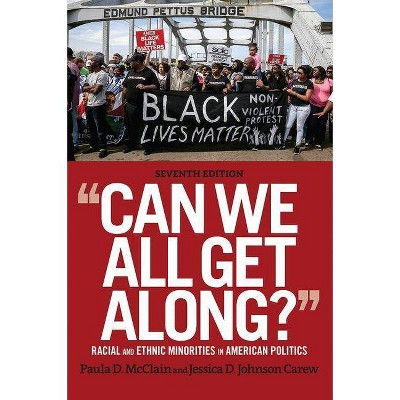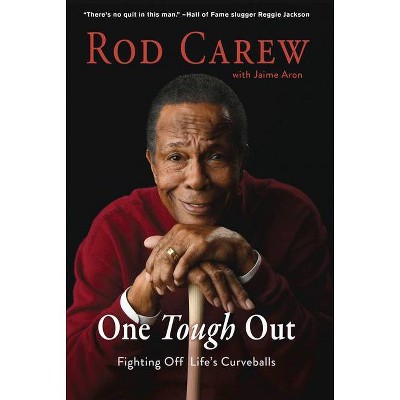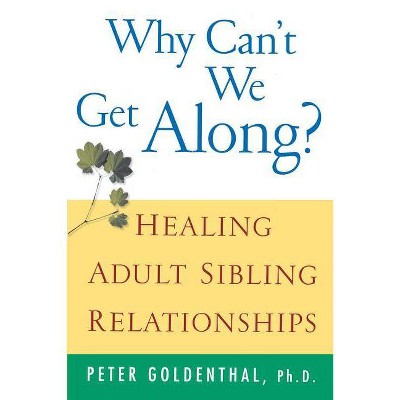Can We All Get Along? - 7th Edition by Paula McClain & Jessica Carew (Paperback)

Similar Products
Products of same category from the store
AllProduct info
<p/><br></br><p><b> About the Book </b></p></br></br>This text provides a comprehensive and accessible overview of the historical and contemporary political experience of the major American minority groups, exploring the similarities and differences in these groups' representation and participation in law, politics, and policymaking; discussing the enduring issues and concerns that they face.<p/><br></br><p><b> Book Synopsis </b></p></br></br><p>In a nation built by immigrants and bedeviled by the history and legacy of slavery and discrimination, how do we, as Americans, reconcile a commitment to equality and freedom with persistent inequality and discrimination? And what can we do about it? This widely acclaimed text by Paula D. McClain, with new coauthor Jessica D. Johnson Carew, provides a comprehensive and accessible overview of the historical and contemporary political experience of the major groups-African Americans, Latinos, Asian Americans, and American Indians-in the United States. It explores the similarities and differences in these groups' representation and participation in law, politics, and policymaking, discusses the enduring issues and concerns that they face, and examines intra- and inter-group competition and coalition-building in the face of enduring conflict and inequality. The seventh edition has been thoroughly revised and updated to include coverage of President Barack Obama's second term, the 2016 election, police brutality and Black Lives Matter, and the Dakota Access Pipeline protest movement. With a brand-new chapter on the intersections of race and gender, <em>Can We All Get Along?</em> remains unparalleled in its comparative coverage of the current landscape of minority politics in the United States.</p><p/><br></br><p><b> Review Quotes </b></p></br></br><br>"This book is a unique resource for helping students to understand the interplay between diverse populations and the American political system. The latest edition provides a rich introduction to the histories, theoretical concepts, and key terms associated with U.S. racial and ethnic politics."--<b>Janelle S. Wong, University of Southern California</b><br><br><i>"'Can We All Get Along?'</i> provides students with a comprehensive yet accessible introduction to the backgrounds and perspectives of minority groups and today's racial politics. There are few textbooks that offer such a detailed historical perspective as well as attention to law, policy, and political participation."--<b>Kira Sanbonmatsu, Rutgers University</b><br><br>"<i>'Can We All Get Along?'</i> explains why Barack Obama's 2008 election to the presidency has not made Rodney King's plaintive cry in 1992 irrelevant any more than it has eliminated race and ethnicity as factors integral to American politics. The fifth edition enables our comprehension of those facts to be as contemporary as today's headlines...An exceptionally useful text!"--<b>Jim Sheffield, University of Oklahoma</b><br><br>"<i>'Can We All Get Along?'</i> is an insightful examination of the racial and ethnic minority political experience in America. It is an innovative book that provides a comprehensive examination of the political experiences of African Americans, Asian Americans, Latinos, and Native Americans and would be useful in a variety of courses."--<b>Sharon Austin, University of Florida</b><br><br>"In the wake of an historic election, students will be searching for ways to understand the significance of race and ethnicity in American politics. This book...provides crucial historical context, vital contemporary data, and a survey of the most up-to-date theory in the field...The backbone of my race and American politics course."--<b>Regina Freer, Occidental College</b><br><br>"This book treats the complexity across groups and within groups in a way that is superb to any other textbook. Students and faculty will find themselves relying on this book in classroom settings and beyond."--<b>Clarissa Peterson, DePauw University</b><br><br>"This latest edition...gives students and instructors alike the updated comparative data and nuanced interpretation they need to understand the magnitude of racial and ethnic politics in the United States."--<b>David E. Wilkins, University of Minnesota</b><br><br><br>"In the wake of an historic election, students will be searching for ways to understand the significance of race and ethnicity in American politics. This book...provides crucial historical context, vital contemporary data, and a survey of the most up-to-date theory in the field...The backbone of my race and American politics course." --Regina Freer, Occidental College<br><br><br>"This book is a unique resource for helping students to understand the interplay between diverse populations and the American political system. The latest edition provides a rich introduction to the histories, theoretical concepts, and key terms associated with U.S. racial and ethnic politics." --Janelle S. Wong, University of Southern California<br><br><br>"This latest edition...gives students and instructors alike the updated comparative data and nuanced interpretation they need to understand the magnitude of racial and ethnic politics in the United States." --David E. Wilkins, University of Minnesota<br><br><br><strong>Praise for Prior Editions</strong><br>"<em>'Can We All Get Along?'</em> explains why Barack Obama's 2008 election to the presidency has not made Rodney King's plaintive cry in 1992 irrelevant any more than it has eliminated race and ethnicity as factors integral to American politics. The fifth edition enables our comprehension of those facts to be as contemporary as today's headlines...An exceptionally useful text!" --Jim Sheffield, University of Oklahoma<br><br><br> In the wake of an historic election, students will be searching for ways to understand the significance of race and ethnicity in American politics. This bookprovides crucial historical context, vital contemporary data, and a survey of the most up-to-date theory in the fieldThe backbone of my race and American politics course. Regina Freer, Occidental College"<br><br><br> This book is a unique resource for helping students to understand the interplay between diverse populations and the American political system. The latest edition provides a rich introduction to the histories, theoretical concepts, and key terms associated with U.S. racial and ethnic politics. Janelle S. Wong, University of Southern California"<br><br><br> This latest editiongives students and instructors alike the updated comparative data and nuanced interpretation they need to understand the magnitude of racial and ethnic politics in the United States. David E. Wilkins, University of Minnesota<br>"<br><br><strong>Praise for Prior Editions</strong><br> <em>'Can We All Get Along?'</em> explains why Barack Obama's 2008 election to the presidency has not made Rodney King's plaintive cry in 1992 irrelevant any more than it has eliminated race and ethnicity as factors integral to American politics. The fifth edition enables our comprehension of those facts to be as contemporary as today's headlinesAn exceptionally useful text! Jim Sheffield, University of Oklahoma"<br><p/><br></br><p><b> About the Author </b></p></br></br><b>Paula D. McClain</b> is a professor of political science and public policy, Dean of The Graduate School, and Vice Provost for Graduate Education at Duke University. Her articles have appeared in numerous journals, including <i>Politics, Groups and Identities, Journal of Politics</i>, <i>American Political Science Review</i>, <i>Urban Affairs Review</i>, and <i>The Du Bois Review: Social Science Research on Race</i>. <p/> <b>Jessica D. Johnson Carew</b> is assistant professor of political science at Elon University.
Price History
Price Archive shows prices from various stores, lets you see history and find the cheapest. There is no actual sale on the website. For all support, inquiry and suggestion messagescommunication@pricearchive.us




















